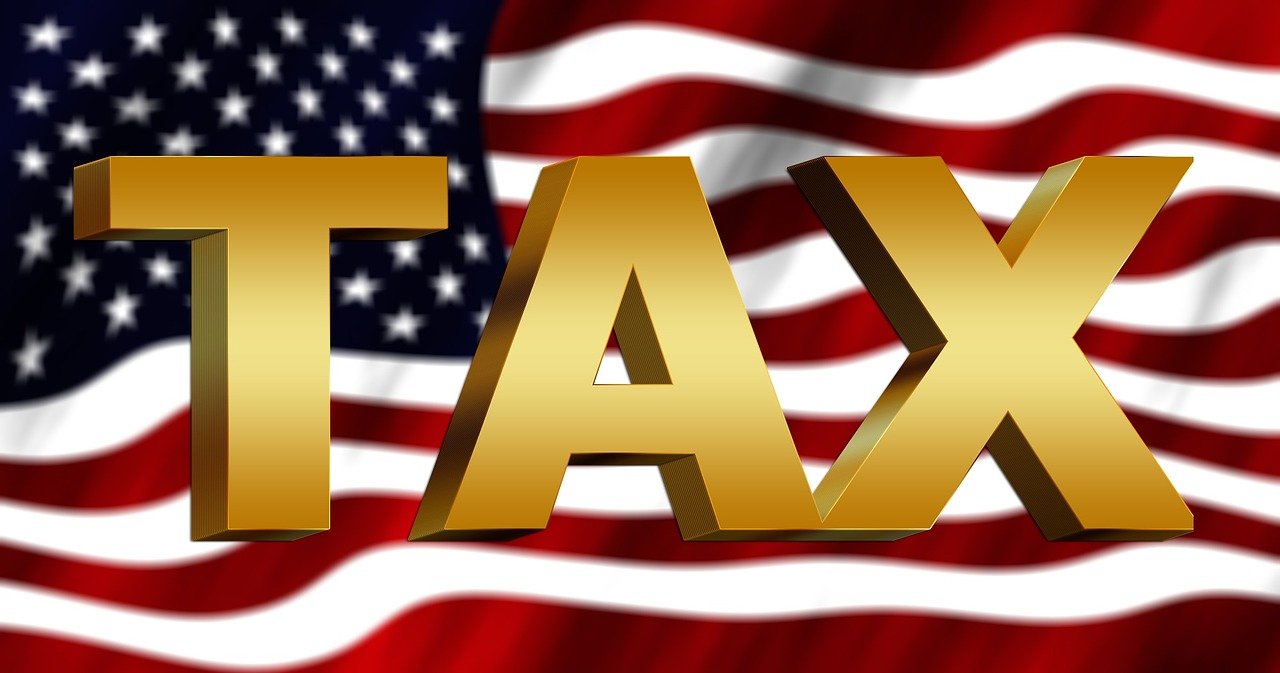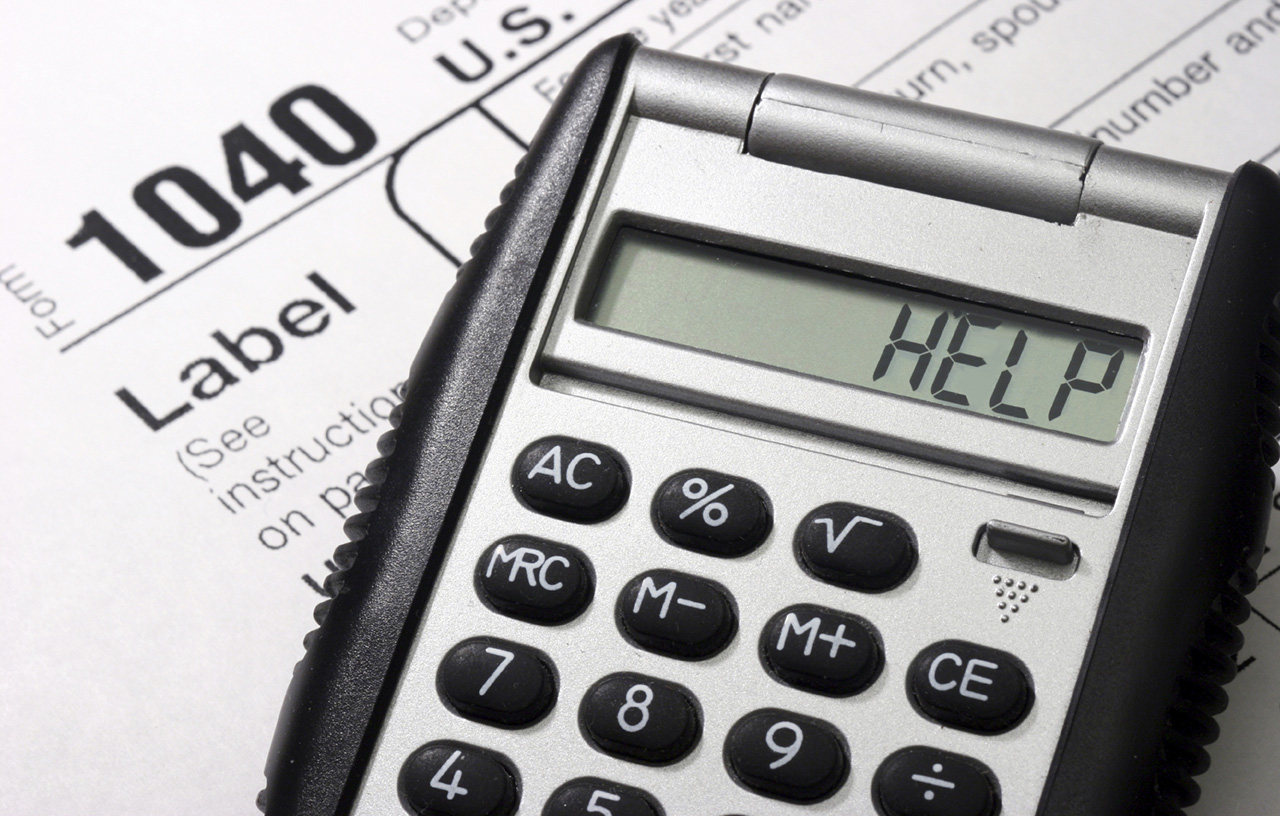Top 10 Tax Season Scams in 2024
You can find tax filing tips everywhere, but here are ten scary scams to avoid. Whether you're filing taxes online or just searching for ways to maximize your tax return, read this article now and educate yourself.
The tax season is a very lucrative time for criminals worldwide. People are still falling victim, whether online or via phone. We caught up with a few reputable security experts to share their tips and collected ten major scams you should be aware of this year, regardless of where you live. Report them to the Federal Trade Commission if you came across them or have been victimized. Here they are below:
Scam Detectors Most Trusted Websites in Online Security
- Guard.io (100): Surf the web safely. Clean up your browser, remove maliscious extensions and check for privacy violations.
- Incogni.com (100): Delete your personal data from the internet and protect against scams and identity theft.
- ExpressVPN (100) Stay secure and anonymous online - Best VPN Out There
- IPVansish (100) Fast VPN to stay safe and secure online with multiple discount plans.
1. Your Tax Refund Scam
Scenario 1. What would you do if you got a call from the Government telling you they can't process your taxes because somebody else ALREADY applied in your name? Watch the video below to see the exposed scam.
Scenario 2. You're checking your email when you notice a message that seems to be from the Government regarding your tax return. The news is good—you're in line for a big refund! If you submit your banking information, they can deposit the money right in your account for you.
You either reply to the email or follow a link to an official-looking site with the government tax agency logo on it (IRS in the US, CRA in Canada, HMRC in the United Kingdom, ATO in Australia, etc.). Of course, there would be nothing wrong with entering your banking information if it were, indeed, your Government. It isn't, and you could stand to lose everything on your card.
Scenario 3: You get an email about your taxes, but this time, you get the email shortly after you submit them. Your tax agency informs you that you can have all the payroll taxes refunded for a fee, usually one proportional to the amount you stand to get back (5%, 10%, etc.). They tell you the amount and ask you to wire the money. If you do so, you can kiss that money goodbye.
“The tax refund email scam is active in over 15 countries all over the world. Don't fall for it. Take the time to read up a bit on the process of tax returns in your country, if you aren't informed already. Always rely on professional accountants this time of the year, contact legitimate companies to prepare your papers, or use trustworthy services”, says Pavel Skuhravy, the founder of TaxOnPax.
2. Tax Agent Call Scam
This is the most common scam during tax season. Watch the video below to hear real scammers in action and their recorded phone calls.
Depending on their country, taxpayers receive phone calls from scammers who purport to be IRS, CRA, or HMRC agents. “They claim to be calling about unpaid back taxes and proceed to threaten the unwitting taxpayers with arrest, lawsuits, suspension of their driver's license, and more,” says Michael Raanan, a former IRS Agent and current owner of Landmark Tax Group.
“They generally use common names and surnames to identify themselves. Some of them spoof IRS toll-free numbers on caller ID to make it appear that the IRS is calling, and they can sometimes recite the last four digits of a victim's Social Security number,” says Raanan.
“Unfortunately, the scammers have worked out an effective system that has netted over $12 Million thus far. After calling the unwitting victim on their cell phone, the taxpayer is persuaded to remain on the phone and instructed to travel to a local convenience store or Walmart to purchase a Green Dot cash card. After the purchase, the victim provides the scammer with the account number on the back of the card, which is as good as cash in the thief's pocket. At a recent IRS tax forum in San Diego, I was informed by an IRS Criminal Investigation agent that the largest loss to a single victim was over $100,000 to a taxpayer who stayed on the line for about 7 hours”, concludes Raanan.
Jayson Mullins from Top Tax Defenders adds to it. “You should know if you owe the IRS money, they will never call and demand immediate payment; they will at least send a notice advising you owe; they will never demand taxes without giving you the opportunity to question or appeal the amount; ask for debit or credit cards over the phone; and bring in law enforcement officers for nonpayment,” says Mullins.

There is even more to that. “One scammer called a customer who had worked in another state. So they told him they were collecting for that state. Then, in the conversation, they found out he owed the IRS and said they were collecting for them, too. The IRS does not initiate action by phone. It's always through the mail”, says Randy Malone from Malone Tax & Bookkeeping.
3. Check Altering Scam
This scam could easily apply to Americans (filling their forms with the IRS), Canadians (CRA), Australians (ATO), or Brits (HMRC) since every national tax agency has an acronym. “If you must send a check to the IRS or any other agency, make sure you spell the words Internal Revenue Service on the check. A common scam is to steal mail, look for checks made out to the IRS, change the I to M or T, and deposit the check in an account opened in that name. It may be months before you discover the check has been stolen, and only after the IRS pursues you for nonpayment”, says Neal O'Farrell, ID Theft Expert with Credit Sesame.
4. Tax Credit Fraud
Scammers promise refunds to people with little or no income, claiming non-existent stimulus payments based on the American Opportunity Tax Credit. The crooks claim they can get victims' money back even if they weren't enrolled in or paid for college. It is a very old scam that's still happening.
Watch the video below to learn about the American Opportunity Tax Credit and how you can qualify.
The American Opportunity Tax Credit is an official refundable tax credit for undergraduate college education expenses. This credit provides up to $2,500 in tax credits on the first $4,000 qualifying educational expenses. The tax credit had a limited life span in the past: it was available only from 2009 through 2012. The American Taxpayer Relief Act of 2012 extended it through December 2017. Therefore, scammers use it, urging the victims to hurry and pay them to fill out the tax forms on their behalf.
If you are unfamiliar with so-called bonus credit for seniors or low-income families, check out the government website before forwarding personal information. If you are approached with a promise of a “guaranteed refund,” then you know it's a scam. Be especially aware of offers of free money with no documentation required or unsolicited offers to prepare a return and split the refund.

5. Taxes Filed Early Scam
This scam is extremely dangerous in the first few months of the year when you haven't even started thinking about filing your taxes. “You might receive a message that seems to be from your country's tax agency, whether it is IRS in the United States, CRA in Canada, ATO in Australia, or HMRC in Great Britain,” says Skuhravy. This could be a voicemail message or an email. It tells you the organization is offering a $50 reward for taxpayers who file their forms earlier than the usual deadline. “It will ease the pressure on our agency, thus ensuring all tax returns are done more timely, ” they say.
“Indeed, the message doesn't come from the real agency. Scammers just steal personal information to commit identity theft, and the number of victims at the beginning of the year is quite alarming. There is no such thing as a bonus for filing your taxes early”, advises Skuhravy.

6. Tax Error Scam
You receive an email from the tax authority in your country. The message seems authentic, containing the organization's logo and details, and came just a few days after you submitted your tax forms.
The text looks like this: “We received your tax return. However, we are unable to process the return. Our records indicate that the person identified as the primary taxpayer or spouse on the tax return did not provide all the required documents shown on the tax form. Our records are based on information received from the Social Security Administration. Based on this information, the individual's tax account has been locked. Please print out the attached notification and list of missing documents, fill it out, add the documents, and send the following information to the address shown in the attached notification.”

Many people fall for this as the message comes right at tax time every year. Victims fill out the fake application and send it to the scammers, thinking it will go to the IRS, CRA, ATO, or HMRC.
As in the Tax Refund Email scam, crooks seek all your personal information. Do not fall for this. If you're going to do it yourself, get professional accountants to do your taxes or official software.
7. Tax Audit Email Scam
“If you get an unsolicited email that seems to be from the IRS or similar, requesting personal information – especially bank account information, passwords or PINs – or claiming you're being audited, it's time to smell a big rotting phish,” advises Robert Siciliano from BestIDTheftCompanies.com.
The IRS will never contact you via email, text, or social media. Make sure you don't click on links or open or download any attachments if you suspect the message is fake. Report any time of phishing to [email protected]”, concludes Siciliano.
To avoid the online tax scams, Siciliano suggests:
- Protect your data. Your personal information (financial institution numbers, investment records, Social Security numbers, etc.) must be secured from the moment it arrives in your mailbox. Don't give personal information over the phone, through the mail, or on the Internet unless you have initiated the contact and are sure of the recipient.
- Chuck the papers. Opt for electronic statements to be received via email to eliminate paper statements coming into your mailbox where thieves could get at them.
- Check and monitor your statements. The best way to ensure that you're not a victim is to monitor your monthly bank statements and do a credit report at least once a year.
- Use a clean machine. Make sure that the computer you use is not infected or compromised. The operating system and browser should be updated.
8. Rogue Tax Preparer
Siciliano also discusses the option of choosing who to work with when preparing your taxes. “It's best to use a reputable tax return service rather than an independent-type preparer. After all, some of these preparers have been known to charge extra high fees for getting you a bigger return or steal some of your refunds,” adds Siciliano.
David Bakke from Money Crashers also brought up the Tax Preparer scam. “You might also come across an individual claiming to be able to prepare your taxes for you and then receive a large refund. Usually, your information is falsified to get the big payoff (leaving you to deal with the consequences), or your return is deposited into a criminal's bank account. To avoid that, if you need help preparing your return, use only a reputable agency”, says Bakke.

9. Identity Theft Tax
This occurs when a criminal fraudulently obtains your social security number and files a fake return in your name. “All they need is your social security number—other documents can be falsified. To get around that, file your return early and never divulge your social security number to anyone unless you are applying for a job or opening a new line of credit,” explains Bakke.
“The sooner you file, the less chance an identity thief has to file ahead of you and claim a refund. Victims of tax-related identity theft say they now have to wait a year or more to get their refund after the incident,” says Neal O'Farrell. “In the first week of February, a grand jury indicted 16 people for running a tax refund identity theft scheme, where they used 11,000 stolen identities, complete with driver's licenses and Social Security cards, to file bogus tax returns totaling $38 million. The refunds were deposited in over 3,000 phony bank accounts opened in 440 different financial institutions. Clear evidence that these identity theft rings are well organized, patient, and motivated”, concludes O'Farrell.

10. Tax-Settlement Scam
During the economic crisis, tons of tax-settlement so-called “agents” have developed great businesses relying on people's desperation to save every cent they can.
Unfortunately, hundreds of these “specialists” advertise themselves as saviors, promising people they can make their tax debts disappear. They charge exorbitant prices in advance, only to claim in the end that “your situation is a little complicated, and unfortunately not much can be done.”
Fees these “consultants” charge could vary from $400 to $25,000, depending on what they catch on the hook.
Although legitimate programs can help you save money, you should avoid “specialists” who ask for hefty fees upfront and conduct their business only through email or phone, never in person. Try to visit their office, research every name, and if they ask you to give them power of attorney over your tax debt, certainly stay away.
How To Avoid the Tax Scams
Whenever your federal tax agency contacts you, it is nerve-wracking. However, it is essential to know how these agencies contact taxpayers. The IRS, for instance, will never send out emails to taxpayers. All official correspondence is done via post mail. So, if you receive an email from the IRS, you can safely delete it. If you receive a phone call from someone claiming to be the IRS, it is recommended that you ask questions to verify their identity.
No matter what agency you are dealing with, the easiest way to verify if they are legitimately trying to contact you is to call the agency directly. If you are talking with a real agent on the phone, they should have no problem with this request. Then, if the person on the phone gets angry and starts to threaten you or, in any other way, does not comply with your request, you can be assured that it is not an actual federal agent.
If you are ever asked for personal information, like your Social Security Number, be very cautious about giving it out. If you give it to the wrong person, they can do a lot of damage to you and your tax situation. Always keep your personal information close to your chest and only give it to reputable organizations.
There will be times when you need to give out your personal information, such as if you are uncomfortable doing your taxes yourself. In this case, you must hire somebody to do it for you. Before hiring somebody to do your taxes, make sure that you do your research and carefully vet anyone who claims to be a taxpayer. You can search online for reviews of tax professionals, ask your friends and family for a referral, or use a reputable company for doing tax returns.
When dealing with scams in the corporate setting, it is advisable to always be extra cautious when handling people's personal information. If you get an email from anyone requesting people's private details, even if it is from the CEO of your company, make sure to verify that it is coming from who it says it is coming from.
One thing you can do is to check if the email originates from the correct email address.
Scammers often fake an email address assigned to the CEO's name so it looks legitimate. A closer look will usually reveal that it differs from the correct address. The best way to verify if the request is valid is to talk to the person making the request. Picking up the phone or talking face-to-face will immediately confirm if this request is valid. After all, no one wants to be responsible for handing over people's personal information to a scammer.
How To Report Tax Scams
Warn your family and friends know about these tax season scams. Feel free to share the article if it was helpful. However, you can report scammers and any suspicious activity officially to the Federal Trade Commission (link at the beginning of the article), the Office of the Inspector General, and the FBI Internet Complaint Center by using the pages below:
Submit Claim To The Office of the Inspector General
Report To The FBI Internet Complaints Center
Verify a website below
Are you just about to make a purchase online? See if the website is legit with our validator:
vldtr®


TOP 4 MUST-WATCH FRAUD PREVENTION VIDEOS
1. Top 5 Amazon Scams in 2024 2. Top 5 PayPal Scams in 2024 3. How To Spot a Scam Email in 2024
- Latest Posts by Selma Hrynchuk
-
Compromised Credit Card Scam
- -
Fake Google Chrome Update
- -
Facebook Privacy Notice Hoax
- All Posts














I received an echo from somewhere thinking it was a gift. I got a feeling that this was some type of scam or Spyware. I took it and let it sit in the toilet bowl for a day, then put it in the garbage and outside
Never respond to an email from the Canada Revenue Agency (CRA) or. do not click on any link or answer any questions over the phone. Each time, go to the CRA website and check your messages. The CRA never contacts us by telephone or email other than to invite us to check our profile.
—————————-
Ne jamais répondre à un courriel de l’Agence du Revenue du Canada (ARC) ni. ne cliquer sur quelque lien que ce soit ou encore de répondre à de questions au téléphne. Chaque fois, aller sur le site de l’ARC et vérifier vos messages. L’ARC ne contacte jamais par téléphone ou par courriel si ce n’est de nous inviter à aller vérifier sur notre profil.
Do not call telephone number 1 (289) 885-4346 – scammers!!!
Watch out for these two phone numbers – scammers about your taxes:
(202) 545-6515
(855) 859-1700 – Susan lol
Another way people try to scam you out of your money is by offering to complete your tax return for you. They offer a number of incentives to try and get you to use them to file your return. Some scammers will offer you the promise of a monster tax refund. They will still file your return for you, but they will falsify information so that you get a return, and they will skim some of the top for themselves. Then when if you get audited by the IRS (which will likely happen because of your huge refund), you will be on the hook for the falsely filed return, and will end up having to pay back all if not more of your initial refund. Other incentives scammers offer is not a huge refund but rather a reasonable rate to do your taxes. Then when they complete your return, they either take some of your refund without you knowing it, or they steal your personal information and use it for other things such as identity theft.
Another scam that has become popular lately happens at a corporate level. Scammers will send emails that appear to be from a company’s chief executive officer or another top level executive in the company. It will contain their actual name and it will prompt employees to send them employee’s personal data. These emails will ask employees such things as:
– Please send the earnings summary of all employees for a quick review.
– Can you kindly send an updated list of all staff members with their full details? (this will often specify which details are required, such as Social Security Number and Salary)
• I am doing a review of the company’s financials, and I need a copy of all employee wage and tax statements for 2016. Please prepare a report and send them to me ASAP.
Today I received this email saying "the CRA has an E transfer of $750.
Click HERE to access your funds.
it sends me here
http://guvenedu.com/wp-admin/includes/onlinecracanadainfocenter/getStatus_en.htm
now it looks legit I almost submitted my sin number. I decided against it.
I may have missed it. I am a victim of a tax identity theft.
I received a letter from NC IRS and from The IRS in Texas asking for more information W2s and 1099 for my taxes. I knew it was wrong because I haven’t filed my taxes yet. Doing some investigating someone had filed taxes in my name.
I live in Canada and I just received the same kind of message. The guy talking had a bit of an accent and I felt he was reading a script. He called himself Ryan and claimed to be from Canada Revenue Agency. He said there is problems with my returns and I should call him back asap at (844) 385-9044, otherwise I should talk to my lawyer. When I called back was a different guy who was a bit confused about which one of the victims I am. He didn’t answered the call with his name and organization, but with a simply "yes, what, who are you? Oh, what number you’re calling from? He was trying to find me on the list of people called.
Thank you Scam detector!
i am not paid my world money other facebook friend, email id friend